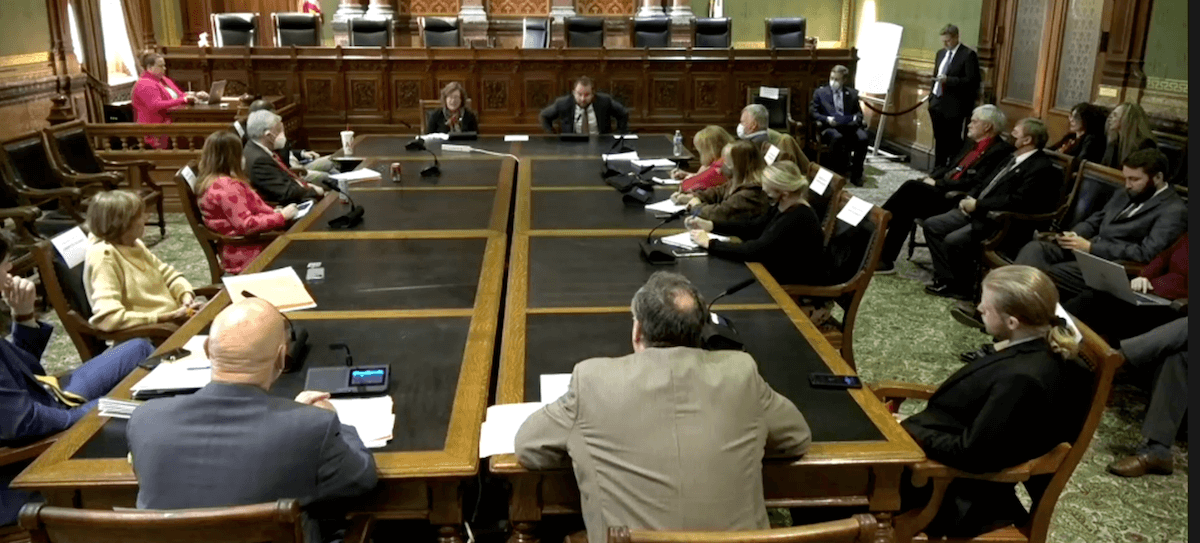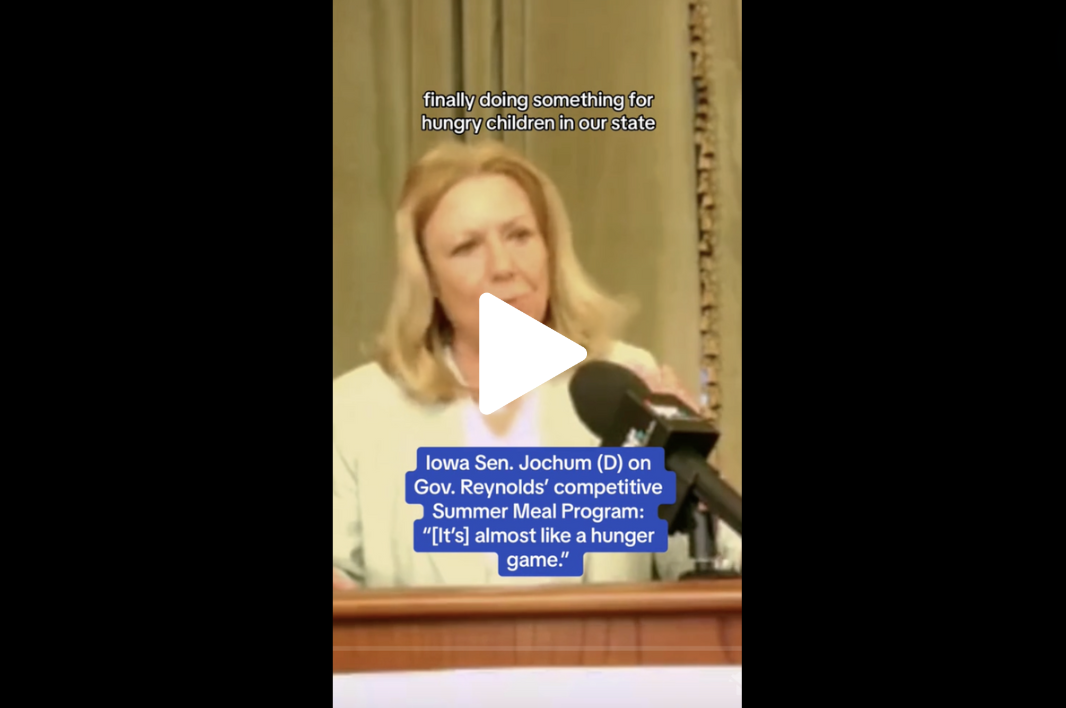
An Iowa union member had a warning to Iowa Republicans pushing for a flat tax rate.
“This bill contains glitter—some may see as improvement—but beware, the flax tax benefits the wealthiest of taxpayers by far the most,” said Pete Hird, secretary-treasurer of the Iowa Federation of Labor.
Hird gave his warning during Monday’s public hearing on HF 2317, a tax plan that would overhaul Iowa’s tax code, some say, to the longterm detriment of lower- and middle-class Iowans.
HF 2317 would reduce the individual income tax rate in Iowa to 4% by fiscal year 2026. Starting in fiscal year 2023, the tax rate would drop to 6%, then 5.7%, then 4.82% before hitting 4%.
[inline-ad id=”1″]
The hope is to implement a flat tax to replace Iowa’s progressive tax, which Iowa State economist Dave Swenson previously told Starting Line was a fairer model for all Iowans.
The wealthiest of Iowans rarely pay the full amount due to a loophole that allows them to itemize their federal tax payments from their state taxes, and those making about $50,000/year in 2019 were able to get theirs under a 4% rate.
Common Good Iowa director Anne Disher said this bill would continue to burden lower earners in Iowa. Disher’s organization is a nonpartisan, nonprofit that uses research and data to find policy solutions.
“This bill makes Iowa’s already unfair tax system even more unfair,” Disher said. “Iowa’s tax system is upside down; the bottom 80% of taxpayers pay about 10-to-12% of their incomes in state and local taxes. At the top, it’s less than 8%.
“That’s because our mildly progressive income tax simply cannot make up for our highly regressive property and sales taxes. And now we’re talking about more income taxes that would overwhelmingly benefit the highest income Iowans.”
[inline-ad id=”2″]
As part of the proposal, revenues for the state of Iowa will decrease until Iowa takes in about $1.6 billion less in fiscal year 2028. To offset some of the losses, the plan would transfer $829 million from the state’s Taxpayer Relief Fund—a good portion of which is boosted by federal dollars—over six fiscal years starting in 2023.
Less revenue will mean fewer state services, according to Swenson. This sentiment was echoed by several speakers who opposed the bill including Progress Iowa director Matt Sinovic.
“There’s simply no way to make these permanent tax cuts without decimating our state budget,” Disher said. “Personal income tax generates half of the state’s general fund. That’s schools, health and human services, environmental protection, justice.”
[inline-ad id=”3″]
Some supporters of the bill had different takes on it. Many of them said a lower tax rate would not only entice more people to move to Iowa but would spark additional corporate investment.
JD Davis of the Iowa Association of Business and Industry thanked the committee on behalf of his organization, which has 1,500 members statewide that employ 330,000 people. He noted the elimination of retirement-income tax—another provision of the bill—offers some unexpected perks such as allowing more Iowans to stay in the state after they are done working.
“This is going to do nice things for the communities they’re in for them to stay active in philanthropy and do those types of things are an unintended good consequence of the legislation,” Davis said.
[inline-ad id=”4″]
Anne Gray, director of the Iowa Natural Heritage Foundation, said her organization is neutral on the bill but could be swayed to support it if it included language to fund the Natural Resources and Outdoor Recreation Trust Fund.
Iowans voted in 2010 to create the trust as a sustainable, ready pot of funding for conservation and natural development projects in Iowa, but the legislature has never allocated funding toward it.
“As you weigh various tax policies and ideas for making Iowa a competitive state for economic growth and workforce development, we encourage you to consider the trust fund and its potential and include it in your final tax reform bill,” Gray said.
by Ty Rushing
02/14/22
Iowa Starting Line is part of an independent news network and focuses on how state and national decisions impact Iowans’ daily lives. We rely on your financial support to keep our stories free for all to read. You can contribute to us here. Also follow us on Facebook and Twitter.
[inline-ad id=”0″]
Politics

Biden marks Earth Day by announcing $7 billion in solar grants
The Biden administration on Monday announced the recipients of its Solar For All Program, a $7 billion climate program that aims to lower energy...

6 terrifying things that could happen if the Comstock Act is used to target abortion
Does 1873 sound like a really, really long time ago? Well, that’s because it is—but if Republicans and far-right anti-abortion activists have their...
Local News

No more Kum & Go? New owner Maverik of Utah retiring famous brand
Will Kum & Go have come and gone by next year? One new report claims that's the plan by the store's new owners. The Iowa-based convenience store...

Here’s a recap of the biggest headlines Iowa celebs made In 2023
For these famous Iowans, 2023 was a year of controversy, career highlights, and full-circle moments. Here’s how 2023 went for the following Iowans:...





